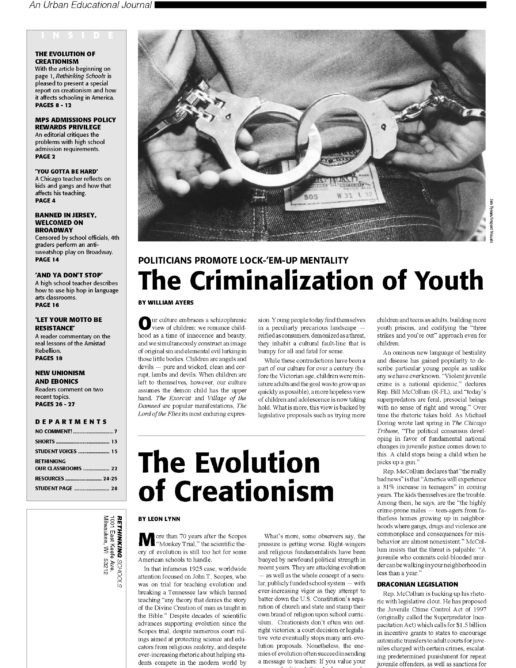Protests Target Sweatshop Labor
Students Play Strong Role in Worldwide Actions

Protests were held throughout the country this fall against sweatshop conditions in factories affiliated with U.S. manufacturers.
Several of the protests were targeted specifically at the Nike Corporation. In New York City, for example, hundreds of youth gathered in late September outside the Sultanate of Swoosh (a Nike Town store in Manhattan) and returned their Nikes. The youth condemned what they called Nike’s double exploitation of the poor — failing to pay workers in their factories a living wage while commanding upwards of $100 for shoes targeted at style-setting urban teenagers.
As Jessie Collins said at the protest: “We want [Nike] to lower the prices of their sneakers, increase the wages of workers in other countries, and produce this product in the inner city, where kids can make some money.”
On Oct. 18, there was an international day of protest against Nike, with protests reported in 13 countries and at least 28 states in this country. The protests were sponsored by the Campaign for Labor Rights, based in Washington, DC.
As part of an ongoing campaign that extends through the December holiday season, demonstrations were held Oct. 4 against sweatshop and child labor. Known as the Day of Conscience, the protests were spearheaded by the National Labor Committee, a human rights group based in New York City. A broad-based coalition of religious, human rights, labor, students, and women’s groups supported the action.
The National Labor Committee argues that “there is no reason that this social movement to defend labor and human rights can’t become as strong as the environmental movement in influencing corporate policy. In the same way that companies want to be seen as being ‘green’ or environmentally friendly, they will also want to be recognized for making products under humane conditions.”
The Oct. 4 protests launched the committee’s Holiday Season of Conscience; it hopes to collect one million signatures on a petition to President Clinton calling for an end to child labor and sweatshops.
As part of the Holiday Season of Conscience, the committee is distributing cards for consumers to leave with store employees while shopping. The card notes in part: “I like shopping here, but I am concerned that what I purchase was not made by children or in sweatshops. What is your company doing to guarantee that the products you sell are made under humane conditions?”

